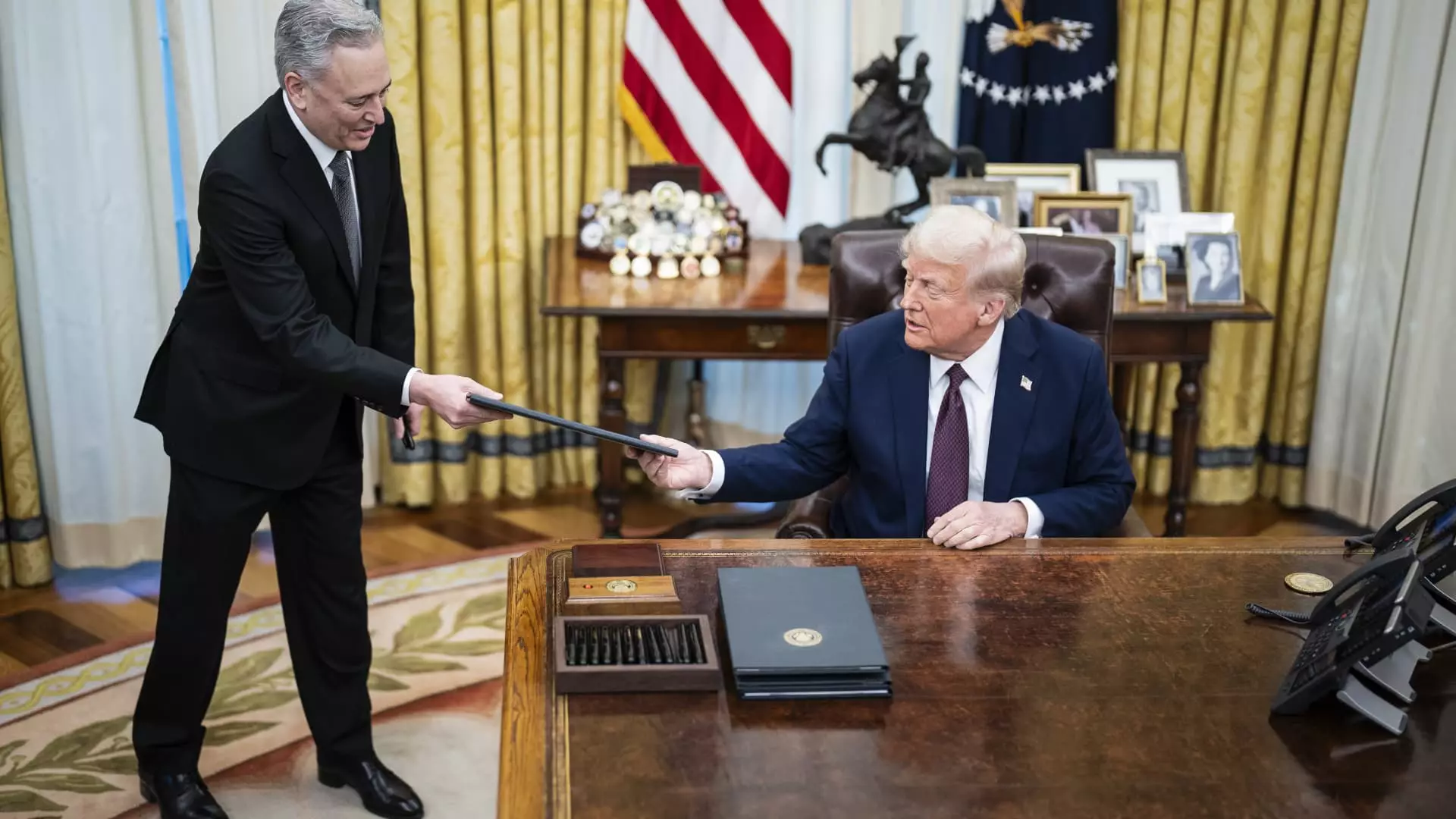When Donald Trump signed an executive order to create a Strategic Bitcoin Reserve, the implications of that decision rippled through the blockchain community and beyond. This bold move signifies a pivotal moment in U.S. digital asset policy, pivoting from a historically skeptical stance toward cryptocurrency to a seemingly endorsement that positions bitcoin as a cornerstone of future economic strategies. By framing it within the context of criminal forfeitures, the administration is cleverly sidestepping taxpayer anxiety while also taking a significant step towards mainstream cryptocurrency acceptance.
The real genius—or recklessness, depending on your perspective—lies in the fact that the reserve will be funded solely through bitcoin obtained from law enforcement actions. In this manner, the government repurposes what many see as ill-gotten gains. Yet one must question: does this strategy elevate bitcoin’s legitimacy or cast it deeper into the realm of financial opportunism? Are we supporting a digital currency that may have dark undertones due simply to its acquisition method?
Treading on Fine Legal Lines
While the announcement has led to initial enthusiasm among proponents of bitcoin, does this really mark a new era? The current policy doesn’t explicitly acknowledge the murky legal waters surrounding cryptocurrencies. Trust in regulatory measures is already fragile, and by introducing a Strategic Reserve that prohibits the sale of its holdings, the government is anchoring itself to an asset that remains highly volatile. The narrative that bitcoin provides a safe harbor in an age of rampant inflation is compelling, but are officials prepared for the potential backlash if the value takes a nosedive?
Moreover, the mention of alternative cryptocurrencies like ether and XRP raises eyebrows among bitcoin purists. Tyler Winklevoss’ concerns resonate with the core philosophy held by many in the community: bitcoin is the single asset deserving of reserve status. By diluting this status with less-established coins, the government risks casting doubt over its commitment to supporting a ‘serious’ digital currency.
A Potential U.S. Digital Asset Stockpile?
The establishment of a U.S. Digital Asset Stockpile is another intriguing element in Trump’s playbook. Managed by the Treasury Department, this stockpile is designed to hold various confiscated cryptocurrencies. What constitutes a “confirmed asset” within this stockpile remains ambiguous, leaving room for misinterpretation and potential misuse. Could the reserve morph into a speculative trading tool or a makeshift safety net in times of economic strife?
Investment experts like Ryan Gilbert urge caution, emphasizing that the intention should be to treat this reserve as a long-term store of value rather than an instrument for short-term profit. But the history of government intervention in market activities suggests that the lines can easily blur. If the U.S. were to actively trade from this reserve, it could send shockwaves through both the crypto and traditional financial markets, undermining any attempts to legitimize bitcoin as a stable asset.
Paving the Way for Institutional Acceptance
One beneficial outcome often cited is the projected impact this reserve could have on institutional investors. Nic Carter’s observations underscore the considerable weight the U.S. carries in global financial circles. Should the country solidify its commitment to a bitcoin-only reserve, it may well act as a bellwether, encouraging other nations to follow suit. In doing so, the U.S. could inadvertently elevate bitcoin’s status to that of a global asset akin to gold.
Yet, we must remain vigilant. Every policy shift carries with it the seeds of unintended consequences. Increased institutional acceptance doesn’t guarantee stability or legitimacy. By positioning bitcoin as a strategic asset, the government must first prove its own stewardship over it.
Concluding Thoughts: Navigating a New Financial Frontier
The establishment of a Strategic Bitcoin Reserve presents fascinating implications for the future of digital currency in America. As we venture deeper into what could either be a golden age for cryptocurrencies or a disastrous misstep, the responsibility falls upon the U.S. government to manage this initiative with forethought and accountability. The stakes are remarkably high, and with increased scrutiny from various financial analysts, the journey ahead will certainly be one of both intrigue and controversy.

